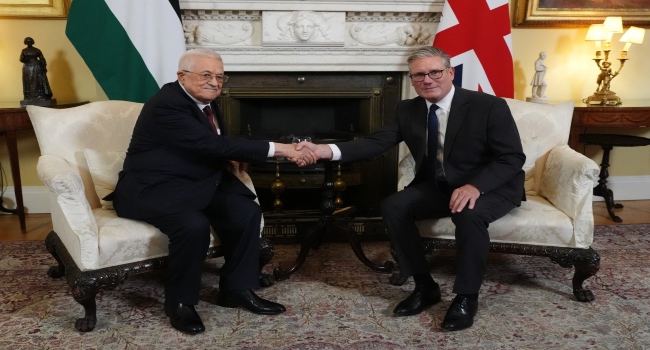LONDON: Britain, Australia, and Canada on Sunday formally recognised the State of Palestine, marking a watershed moment in decades of Western foreign policy and sparking immediate outrage from Israel.
Portugal also announced plans to follow suit later the same day, underscoring growing international momentum behind Palestinian statehood as Israel faces mounting pressure over its prolonged war in Gaza.
UK Prime Minister Keir Starmer declared the recognition in a statement posted on X, saying the move was intended to revive the hope of peace for Palestinians and Israelis, and a two-state solution.
Canada and Britain thus became the first members of the G7 bloc to take the step, with France and other European nations expected to follow at the UN General Assembly opening Monday in New York.
Canadian Prime Minister Mark Carney wrote on X: Canada recognises the State of Palestine and offers our partnership in building the promise of a peaceful future for both the State of Palestine and the State of Israel.
Israeli Prime Minister Benjamin Netanyahu condemned the decision, warning that calls for Palestinian statehood “endanger our existence and serve as an absurd reward for terrorism.” He vowed to resist such efforts at the UN.
The move comes as Israel continues its military offensive in Gaza, which has caused unprecedented destruction, a spiralling death toll, and widespread hunger.
The UK government has been under rising public pressure, with mass pro-Palestine rallies across British cities. A recent YouGov poll revealed that two-thirds of Britons aged 18 to 25 supported Palestinian statehood.
Deputy Prime Minister David Lammy had earlier acknowledged at the UN that Britain bears a special burden of responsibility for a two-state solution, referencing the 1917 Balfour Declaration, which paved the way for Israel’s creation.
Currently, more than 140 of 193 UN member states evision | September 21, 2025already recognise Palestine.
Hamas’s October 7, 2023, attack on southern Israel killed 1,219 people, mostly civilians, according to official figures. In response, Israel launched a massive military campaign in Gaza.
Figures from the Gaza health ministry considered reliable by the UN indicate that at least 65,208 people, most of them civilians, have since been killed.
The war has created one of the world’s worst humanitarian crises, with food shortages and collapsed infrastructure.
While supporters of recognition see it as a long-overdue step toward peace, critics argue it risks rewarding Hamas and undermining negotiations.
Portugal’s President Marcelo Rebelo de Sousa defended his country’s decision, saying: By acting now, we’re keeping alive the possibility of having two states.
Palestinian Foreign Minister Varsen Aghabekian Shahin stressed that recognition was not symbolic, but a clear message to Israel that occupation cannot last forever.
The developments have deepened divisions among Western allies, with the United States yet to follow the path taken by London, Ottawa, and Canberra.
As the UN General Assembly begins, the recognition of Palestine by three major Western democracies has shifted the global debate renewing calls for peace, while intensifying one of the most polarising diplomatic battles of the century.



